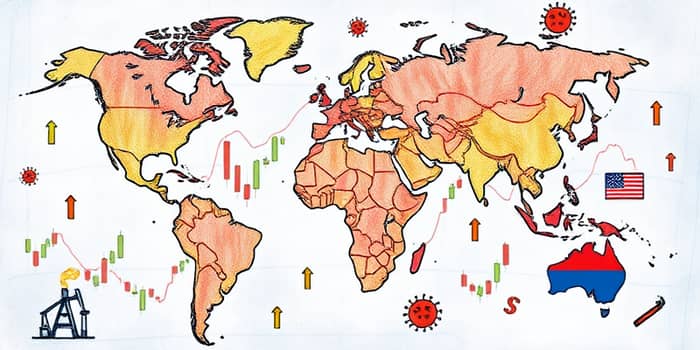In today’s fast-paced world, financial markets never operate in isolation. From geopolitical upheavals to health crises, global events can have profound and immediate impacts on stock prices, investor confidence, and overall market stability. Understanding these forces is essential for anyone seeking to navigate the complexities of modern investing.
The Mechanisms Behind Market Reactions
Market reactions are driven by a combination of emotional and herd reactions that amplify news flow. When investors receive new information about political tensions or economic policy changes, they often respond collectively, leading to significant price movements. This phenomenon highlights the central role of psychology in trading decisions.
Heightened uncertainty also causes sudden and dramatic price swings across global indices. Volatility spikes as traders scramble to adjust positions, often fueled by algorithmic trading and stop-loss triggers. These movements can erode portfolio values in a matter of hours, underscoring the importance of robust risk management strategies.
During crises, capital frequently shifts to safe-haven investments such as gold, government bonds, and stable currencies. This flight to quality is characterized by safe-haven asset capital flows that seek to preserve wealth amid turmoil. While stocks tumble, these instruments often see rapid inflows as investors seek shelter from market storms.
Supply chain disruptions and commodity price shocks present additional challenges. Events like natural disasters or trade disputes can halt production, drive up costs, and squeeze corporate earnings. Alongside these factors, sustained currency depreciation pressures can emerge when a nation’s monetary policy or political instability undermines confidence in its currency, further complicating the landscape for multinational companies.
Key Types of Global Events and Their Effects
Broadly speaking, global events fall into four main categories, each exerting unique forces on the market. Geopolitical tensions, economic policy shifts, health emergencies, and natural disasters all have distinct transmission and sector-specific repercussions.
Investor Behavior and Market Patterns
Investor psychology plays a critical role in translating global events into market movements. Thanks to rapid global news transmission, fear and optimism can trigger exaggerated responses, while contrarian investors often step in to capitalize on oversold conditions.
- Leading economic indicators such as GDP, PMI, and inflation rates
- Bond yields and gold prices as real-time risk gauges
- Currency strength, particularly USD, EUR, and JPY
- Commodity prices like oil and metals for sector insights
- Central bank communications that guide short-term sentiment
Balancing Short-Term Volatility and Long-Term Trends
While global shocks often induce sharp, short-lived volatility spikes, their lasting impact depends on the nature and duration of the event. Most markets recover quickly after policy interventions or stimulus announcements, but major long-term structural changes—such as sustained sanctions or new trade agreements—can redefine economic landscapes for years.
Practical Strategies for Investors
- Diversify across asset classes and geographies to spread risk and capture varied recovery paths.
- Maintain an allocation to safe-haven assets to cushion against sudden downturns.
- Monitor key global indicators daily and set predefined thresholds for rebalancing.
- Use volatility as an opportunity by identifying oversold sectors for tactical entries.
- Stay informed on evolving policy decisions and adjust portfolios proactively.
Conclusion: Navigating an Interconnected World
Global events will continue to shape the fortunes of stocks and investors alike. By recognizing the channels of impact—from sentiment waves to supply chain constraints—and adopting resilient strategies, market participants can turn uncertainty into opportunity. The key lies in staying informed, remaining flexible, and preparing for both the immediate shocks and the lasting transformations that define today’s financial markets.
References
- https://www.avatrade.com/education/economic-indicators/global-economic-events
- https://dailyemerald.com/164087/promotedposts/how-global-events-influence-stock-market-volatility-and-investor-behavior/
- https://www.timeline.co/blog/how-major-world-events-have-always-impacted-stock-markets
- https://privatebank.jpmorgan.com/nam/en/insights/markets-and-investing/how-do-geopolitical-shocks-impact-markets
- https://www.abacademies.org/articles/how-global-events-are-shaping-stock-market-prices-a-look-at-recent-volatility-17246.html
- https://www.getsmarteraboutmoney.ca/learning-path/stocks/factors-that-can-affect-stock-prices/
- https://www.finhabits.com/global-events-and-their-impact-on-the-stock-market/
- https://www.investopedia.com/articles/basics/04/100804.asp










